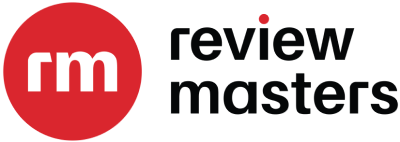After a class with your teacher or a seminar you attended, how much do you really remember? I won’t be surprised if you answered “a little” or “none at all.” Don’t worry, you’re not alone.
We have been learning our whole lives; our entire childhood was spent in school. We attended class, listened to lectures, answered our assignments and took exams. However, it seems that what we remember does not correlate to how much is being taught to us.
What could be causing this?
A body of research shows that the key to effective learning is not just what you know, but what you know about what you know (get it?).
To put it straightforwardly, when a student learns, he or she calls two kinds of prior knowledge from the mind:
Here’s the bad news: the current education system emphasizes on the first point and almost completely disregards the second one. The disregard could be unintentional but it is very damaging, given that one’s ability to learn is a huge predictor of life success, from academics achievements to work milestones.
Parents and educators are pretty good at imparting the first kind of knowledge. We’re comfortable talking about concrete information: names, dates, numbers, facts. But the guidance we offer on the act of learning itself — the ‘metacognitive’ aspects of learning — is more hit-or-miss, and it shows.Annie Murphy PaulAnnie Murphy Paul mentioned in her article, “Parents and educators are pretty good at imparting the first kind of knowledge. We’re comfortable talking about concrete information: names, dates, numbers, facts. But the guidance we offer on the act of learning itself — the ‘metacognitive’ aspects of learning — is more hit-or-miss, and it shows.”
Putting this in perspective, our current education teaches students what to learn and NOT how to learn.
New researches show that there is great variations in what students know about how to learn.
The most striking finding is that low-achieving students show “substantial deficits” in their awareness of the cognitive and metacognitive strategies that lead to effective learning. This means that these students are struggling due to a gap in their knowledge about how learning works.
So how do we learn how to learn? Here are the learning techniques that work. Make sure that you apply these when you study and review for your tests.
1. Force yourself to recall
By default, learning is a bit hard and not fun. Recall needs effort. However, when you trying to recall things and you are having difficulty with it, that’s when you are learning best. It just like weightlifting; the more weight you lift, the stronger you get.
2. Make connections
The author of the book Make It Stick: The Science of Successful Learning tells us that “the more you can explain about the way your new learning relates to prior knowledge, the stronger your grasp of the new learning will be, and the more connections you create that will help you remember it later.”
Using real-life examples of concepts you just recently learned is one effective technique to remember in making connections. If you have just learned about gas laws, think of what happens when you inflate a tire or when you put a balloon in the fridge.
3. Answer the question WHY?
Knowing the underlying reason why a phenomenon is happening or a concept is proven is one way of learning effectively. With questioning, our brains are making connections, doing logical processes and creating images that facilitates our understanding.
Asking why is part of a larger technique, which is reflection. Contemplating on why things are, what happened during the day and how something works helps improves our self-efficacy.
4. Avoid fluency
Fluency is the feeling of ease when you’re reading something.
It’s a trap!
Say, for example, you are in a commercial building and you are trying to remember the room number where you went to. On the door says 112-B. You then think, “Oh, 112-B. Easy!” Then as you walk away, you forgot it instantly.
Instead of just reading the room number, a better way to do it is after looking away, ask yourself, what’s the room number? If you recall it’s 112-B, then you’re good to go.
5. Be hilarious and make exaggerations
Consider this statement: DO NOT think of a pink flying elephant. Were you able to avoid thinking about it? Compare that to an ordinary elephant, which is easier to remember?
Words and pictures work great together. If properly put into use, it can be a powerful learning technique.
If you can put a concept in a mental image that is unforgettable, then it is easier for you to recall things. One way of doing that is by imagining concepts using hilarious and exaggerated images. Adding more details using the other senses aside from sight to you mental image will enhance your recall.
For example, if you are studying European history, imagine a bobble-head Napoleon Bonaparte wearing a shiny crown riding a red tank eating french fries. You can use these cues to remember that he is a French (hence, the fries) military leader (indicated by the tank) and emperor (the crown).
Final Thoughts
Learning is not just about content and subjects matter. It’s also about the process. Learning how to learn is probably one of the major factors that could spell success or failure in one’s academic life.


Comments 2
…that will also take unlearning before we can learn how to learn!
let me try this…